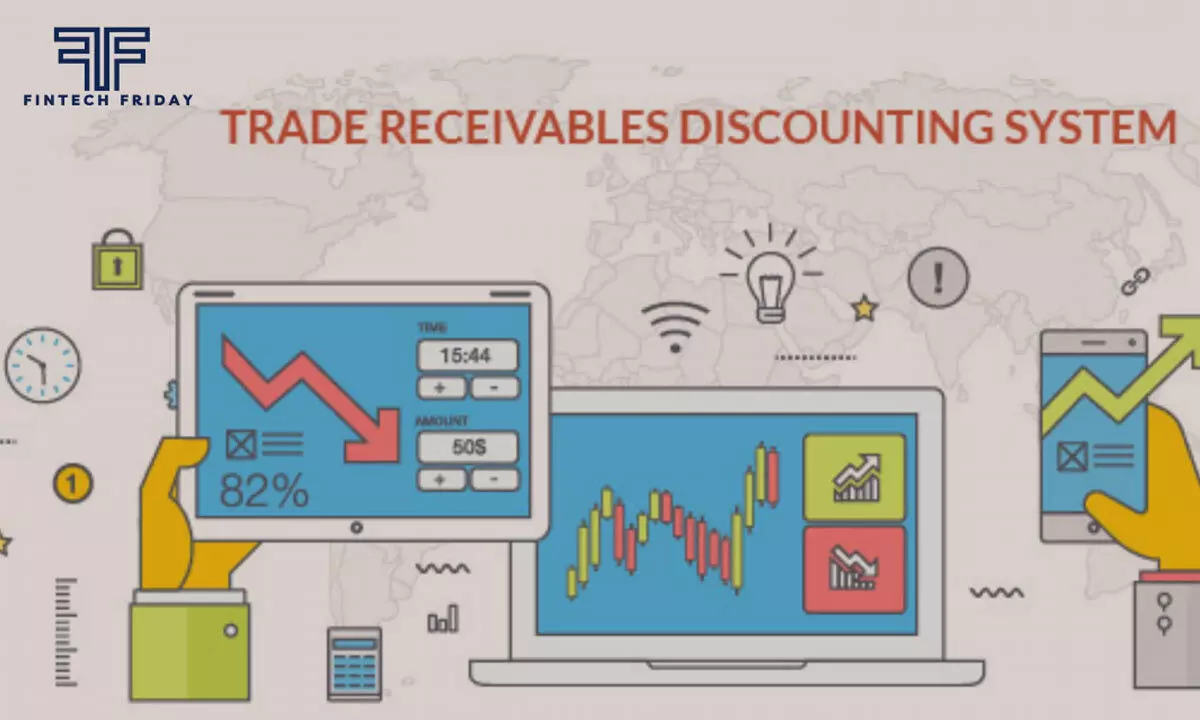TReDS connects all stakeholders in MSME ecosystem
MSMEs can obtain working capital on this unified digital platform by auctioning their trade receivables
image for illustrative purpose

What is the Trade Receivables and Discounting System (TReDS)? Can any businessman or small business take benefits from it?
- Aniruddh Velegapudi, Guntur
Micro, small, and medium enterprises (MSMEs) have played an immense role in the growth of the Indian economy. With over 63 million MSMEs employing over 11 crore people across the services and manufacturing sector, the MSME sector contributes one-third to India's GDP.
Despite MSMEs' vital role in industrialisation, 50 per cent contribution to exports, employment generation and the country's economic fabric, the MSME sector is facing constraints in obtaining adequate finance, particularly the easiest and cheapest loans. Getting the trade receivables fully and within the stipulated time is a herculean task for them.
In order to arrest the issues, in 2004, the Reserve Bank of India introduced the concept of the TReDS. This is an electronic invoice discounting platform which is regulated by RBI and endorsed by the central government to provide MSME suppliers (sellers) of corporate companies (buyers) instant payments for future receivables to prevent delays in payouts for cash-strapped small businesses.
The rules, regulations and guidelines of TReDS fall under Section 18 of the 'Payment & Settlement Systems Act 2007.' Trade Receivables Discounting System is an electronic platform for facilitating the financing and discounting of trade receivables of MSMEs through multiple financiers, including corporate, investors, Public Sector Undertakings (PSUs), and Government Departments.
The TReDS will facilitate the discounting of both invoices and bills of exchange. It deals with receivables factoring and reverse factoring to attract higher volumes and keep better pricing. The MSMEs engaged in manufacturing goods and services. The classification of MSMEs is based on investment and turnover as per The MSMEs Development (MSMED) Act 2006.
i) Micro Enterprise: Investment in Plant and Machinery or Equipment is not more than Rs 1 crore, and annual turnover does not exceed Rs 5 crore.
ii) Small Enterprise: Investment in Plant and Machinery or Equipment is not more than Rs 10 crore, and turnover does not exceed Rs 50 crore.
iii) Medium Enterprise: Investment in Plant and Machinery or Equipment is not more than Rs 50 crore, and turnover does not exceed Rs 250 crore.
TReDS is a unified digital platform for sellers, buyers and financiers, where MSMEs can obtain working capital by auctioning their trade receivables. Auctioning of trade receivable is also known as Bills Discounting. In other words, Sellers, Financiers and Buyers are the participants on a TReDS platform. Only MSMEs can participate as sellers in TReDS. Buyer: Corporates, companies, PSUs, Government Departments and other entities, as permitted by the RBI, can participate as buyers in TReDS.
Seller: MSME entities as per the definition of the Micro, Small and Medium Enterprises Development Act 2006 (MSMED Act).
Financier: Banks, NBFC, Factoring Companies, Financial Institutions and other Institutions as permitted by the RBI are eligible to act as financiers in TReDS.
TReDS acts as a hub and connects various stakeholders in the ecosystem. All transactions in TReDS are online, so it eliminates paper, standardises practices and supports seamless data flow. TReDS facilitates easy access to funds with competitive discount rates. Hence TReDS streamlines the process of uploading, acceptance, discounting, and trading and abridges the payment procedure of MSMEs' invoices and bills.
For example, an ancillary unit that manufactures and supplies raw materials like cleaning agents, common solvents and amino acids to a large pharmaceutical company. A bank or a factoring company acts as a financier and gives an advance to the ancillary unit against a bill due from the pharma company.
A bank (financier) buys a trade receivable (invoice) from a raw material supplier (seller) of goods before the invoice is due or before the Pharma company (buyer) credits the value of the invoice. This means the MSME gets credit against an invoice which is due to the firm at a later date. The discount is the interest paid to the financier. As per RBI's guidelines, the financiers cannot bid below the MCLR(Marginal Cost of Fund Based Lending Rate).
The MSME (seller) uploads the invoice on the TReDS platform and sends it to the buyer for acceptance. The invoice becomes a Factoring Unit (FU) upon obtaining approval from the buyer. The Factoring Unit gets auction clearance once the invoice reaches the bidding process. The financiers on the platform submit their bids with their finance (discounting) rate. Some of these financiers include SBI, PNB, Bank of Baroda, Kotak Mahindra, ICICI, HDFC, Standard Chartered, YES Bank, and IndusInd Bank.
The seller or the buyer, as the case may be, or whoever is bearing the interest (financing) cost, chooses the best bid and gets to accept the final bid. TReDs then settle the trade by paying the MSME (seller) and debiting it to the financier at the agreed-upon financing or discounted rate. MSME (seller) gets the amount credited to his designated bank account within a working day. The last step of the transaction is repaying the financier on the day it's due. TReDs platform is transparent and enables quick financing options for MSMEs with a cheaper alternative to banks and factoring companies. However, handling default payments is outside the scope of the TReDS platform.

